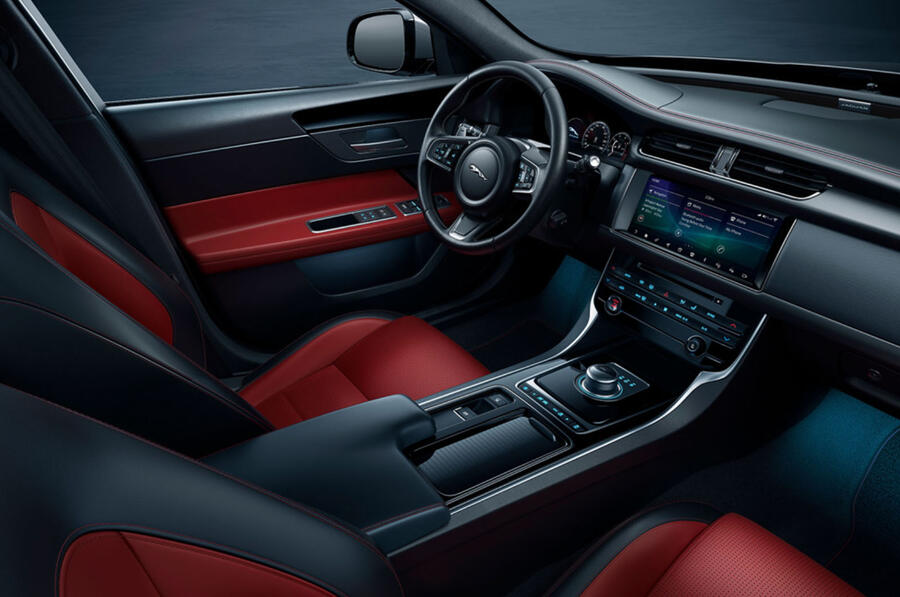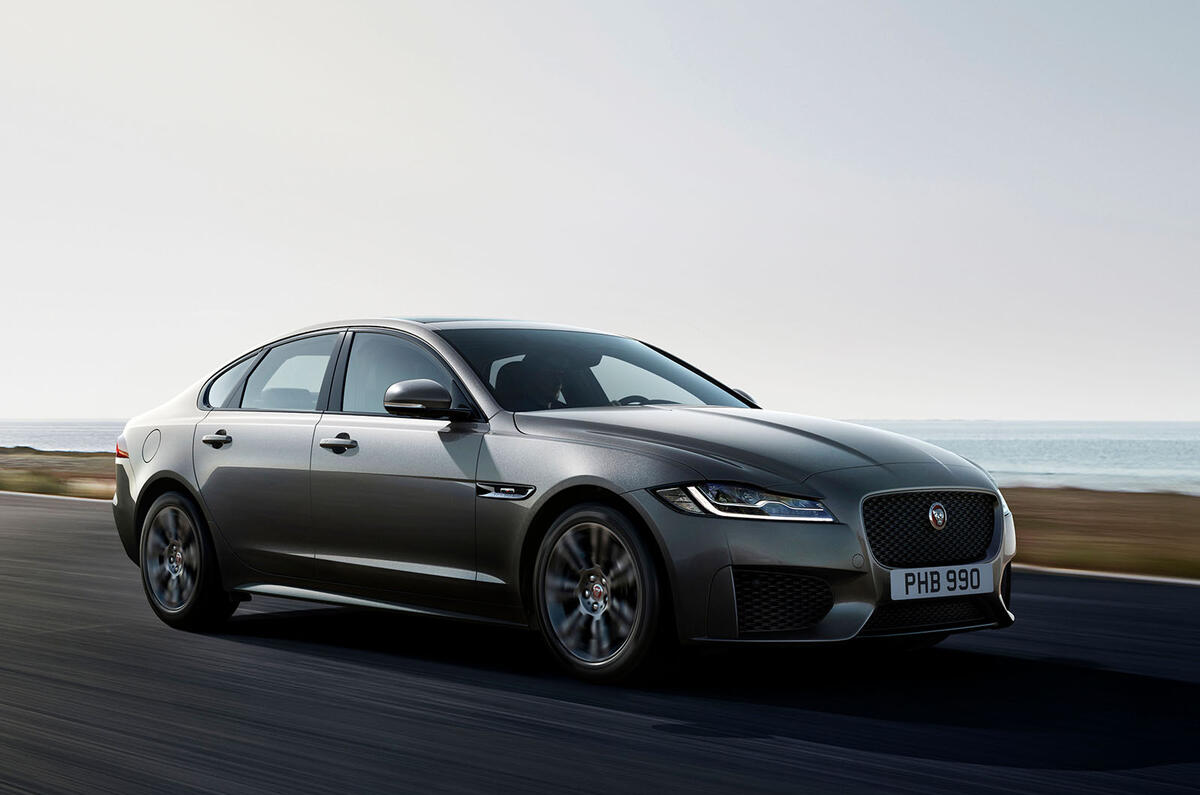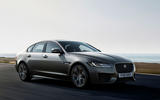The Jaguar XF has been updated for 2019 with a range of RDE2-compliant diesel engines, becoming the first executive saloon to meet upcoming emissions regulation changes.
Although RDE2 compliance won’t become mandatory for manufacturers until January 2021, meeting emissions targets will make the XF saloon and XF Sportbrake estate more appealing to fleet buyers and company car drivers.
The 161bhp and 178bhp rear-wheel-drive diesel variants of both cars now avoid a 4% benefit-in-kind surcharge affecting non-compliant diesel cars in the UK. According to Jaguar, this could result in company car drivers saving up to £2304 over three years, and private buyers saving up to £245 in first-year vehicle excise duty.
Currently, the only other RDE2-compliant cars are from Mercedes-Benz, but they do not include any of its executive models.
“These new diesel engines meet the demanding target, set by the latest European standards, well ahead of schedule,” Jaguar Land Rover UK managing director Rawdon Glover said. “The test results reflect their performance in real-world driving conditions – and Jaguar’s commitment to offering customers outstanding driving dynamics with the lowest cost and impact on the environment.”
The updated XF now has ultra-low rolling resistance tyres. On diesel variants, this reduces CO2 emissions by up to 8g/km.
A smartphone pack, which adds Android Auto and Apple CarPlay integration to the XF’s 10.0in touchscreen, is now standard across all models.

The range has been bolstered with the addition of a Chequered Flag special edition, which adds a sport bumper, boot spoiler, unique badging, black 18in alloy wheels and choice of Yulong White, Santorini Black or Eager Grey colours. Inside, it includes R-Sport leather seats, a Navigation Pro infotainment system and aluminium dashboard trim.
Jaguar’s director of design, Ian Callum, said both XF models “feature beautiful silhouettes, giving them a dynamic appearance perfectly suited to the Chequered Flag badge”.
The updated XF saloon, available to order now, starts from £34,950, while the XF Sportbrake begins at £37,390.
Read more















Join the debate
Add your comment
4% BIK
If certifying the engine to the latest standard reduces BIK by 4%, then that IS a big deal for company car drivers. Diesel is highly suitable for driving along the motorway from one out-of-town industrial estate to another. I spent 30 years of my life doing exactly that!
Premium means...
...that the manufacturer chooses to do something that will cost the customer more money because "whatever it is will be an improvement on doing it with a budget constraint"..so I ask you why doesn't a company like Jaaaaaag have a six cylinder "available for those that want a premium experience". A 2.5 - 4.0 V12 cylinder would have been an exquisite alternative. There is also the UK government that made everyone "look the wrong way" as they "punched the public in the face first with petrol>>>diesel then diesel>>>petrol..I learned my lesson after the first part.
Poor sales will not be due to diesel confusion in future many
No longer will JLR at the end of every month if sales continue to fall be able to blame confusion in buyers minds about diesel or the demonisation of diesel by government taxation policy.
JLR have solved the problem of dirty diesel engines and should be congratulated.
They now need to spend money and promote the new cleaner diesel engines across all European markets including Germany, a market that has rejected diesel cars to a greater extent than the U.K.
It might be argued that there are many long distance car users that will buy an updated diesel XF in the U.K. but the XF will continue to be unprofitable if important export markets continue to reject diesel cars
peetee wrote:
no they have not solved the problem of dirty diesel engines!! they have tweaked them to make them nearer, but not quite fully competitive with where others have been for years.Companies like Honda and Toyota have 'solved the problem' with hybrid technology and doing away with diesels. Even PSA are light years ahead with petrols cleaner than JLR's diesels.
Toyota and Honda solved the problem. Not in the UK
Not yet and certainly not in the UK, Toyota via Lexus sell in very limited numbers in this BMW 5 series segment, plus you can still get a diesel Civic and the Land cruiser uses a very dirty 2.8 diesel. Honda/Infinti also sell next to next to nothing in class. They might have solved their diesel problem in this large executive class but only because they're pulling out it.